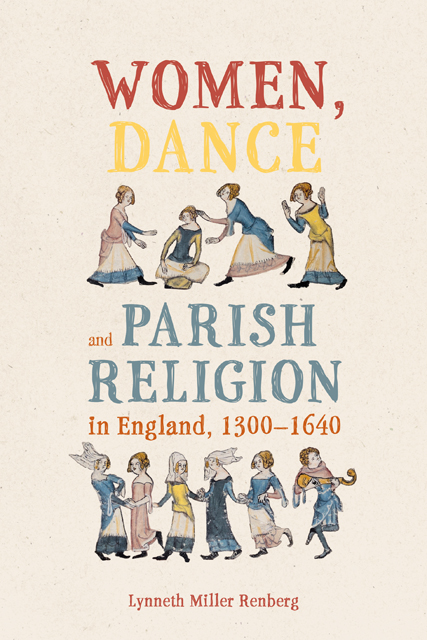Book contents
- Frontmatter
- Dedication
- Contents
- Acknowledgments
- List of Abbreviations
- Introduction
- 1 Reforming and Redefining True Religion
- 2 Dance and Protecting Sacred Space
- 3 Dance and Disrupting Sacred Time
- 4 “Satan Danced in the Person of the Damsel”
- 5 “In Her Dance She Had No Regard Unto God”
- 6 Performing Dance, Sin, and Gender
- Conclusions
- Appendix
- Timeline
- Bibliography
- Index
- Gender in the Middle Ages
1 - Reforming and Redefining True Religion
Published online by Cambridge University Press: 17 December 2022
- Frontmatter
- Dedication
- Contents
- Acknowledgments
- List of Abbreviations
- Introduction
- 1 Reforming and Redefining True Religion
- 2 Dance and Protecting Sacred Space
- 3 Dance and Disrupting Sacred Time
- 4 “Satan Danced in the Person of the Damsel”
- 5 “In Her Dance She Had No Regard Unto God”
- 6 Performing Dance, Sin, and Gender
- Conclusions
- Appendix
- Timeline
- Bibliography
- Index
- Gender in the Middle Ages
Summary
How does one create a church in which ordinary men and women can give an answer for what they believe and live according to that belief? The answers to these questions shifted between Fourth Lateran Council in 1215 and the Reformations of the sixteenth century, but the questions themselves drove both reform movements. Pope Innocent III, his medieval cardinals, and sixteenth-century reformers would likely all be offended by this categorization of their reforms as more similar than not. Yet, despite differences on the role of scripture, justification, sacraments, ecclesiology, and numerous other issues, these reforms had similar aspirations. Furthermore, the ways in which these medieval and early modern reformers sought to teach the faith, ensure that laity lived the faith, and protect the faith often took similar forms.
Held in 1215, Fourth Lateran aimed at clerical and lay education along with greater regulation with the medieval church. Convened by Pope Innocent III, Fourth Lateran sought mainly “to reinvigorate the health of the local churches” and to “prepare the laity to be able to identify heretics … the council and [its decrees] generated a ‘revolution’ in pastoral care.” Canons 10 and 21, dealing with preaching and confession respectively, set new standards for clerical behavior and authority and necessitated the creation of new materials for clerical education. Other topics addressed in the remaining seventy canons included heresy, clerical behavior, church governance, and social order. And while one of Innocent III’s goals in calling the Council was to reform the church, a second goal, tied to Canon 3 and its discussion of heresy, was articulated in Canon 71 with its call for another crusade. The Albigensian Crusade, the Holy Land Crusades, and the Reconquista show the late medieval continuation of Fourth Lateran’s focus on heretics and infidels, while the late medieval boom in lay piety and vernacular texts highlighted the ways in which Fourth Lateran’s focus on the health of the laity shaped faith and practice up until the Reformations of the early modern period.
While Fourth Lateran’s better-known efforts at creating Christian hegemony came in its campaigns against European heresies, Jews, and the Muslim occupants of the Holy Land, its positions on clerical (and hence lay) education sought to promote a similar hegemony, albeit through subtler means and smaller institutions.
- Type
- Chapter
- Information
- Women, Dance and Parish Religion in England, 1300-1640Negotiating the Steps of Faith, pp. 19 - 50Publisher: Boydell & BrewerPrint publication year: 2022



